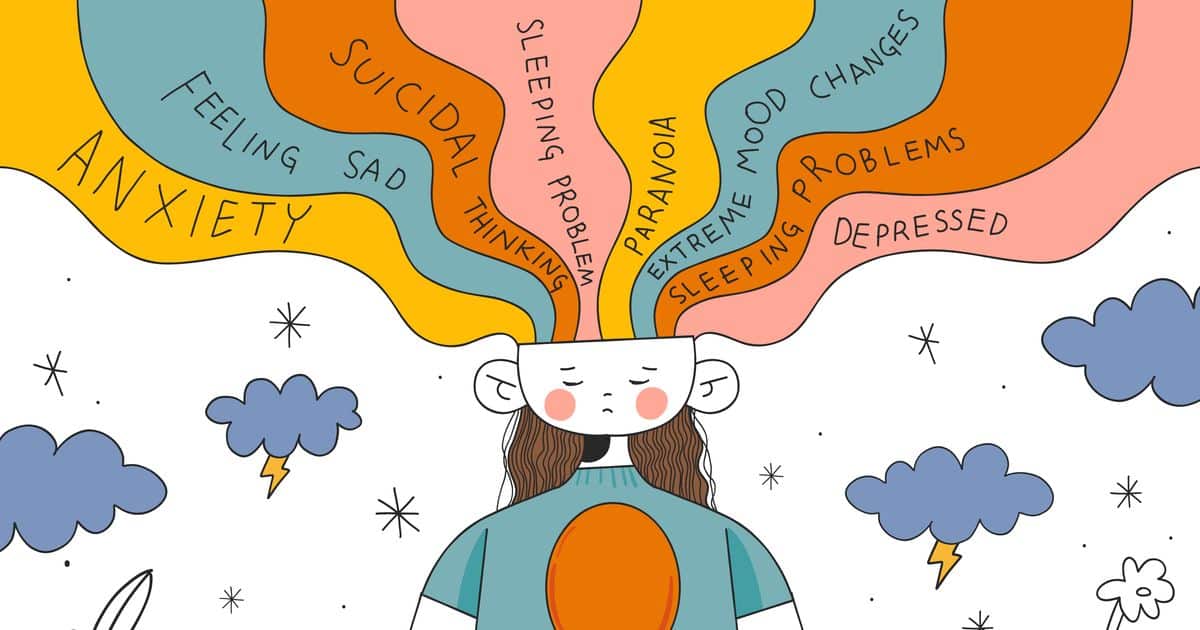In our journey through life, the most significant battle you and I encounter isn’t with the world, but within ourselves: the lifelong tussle of self-love vs self-hate.
Whether it’s our unforgiving reflection in the mirror, or societal pressures whispering standards we ‘ought to’ meet.
Each hits women with unique intensity, affecting our mental health.
I recall being so frustrated seeing women crying or putting themselves down because they don’t look like what they see on their Instagram page. If nobody told you yet, it’s all fake honey!
Why it is so hard for us women to embrace our imperfections? That is what us unique!
Ladies, today, I’m so inspired to write this article because this is more than a self-help spiel—it’s a call to reclaim our self-perception, transform our mental health, and learn to scream back to society, “I am enough, just as I am and I accept myself fully and exactly as I am.”
Come on! Let’s do this!
- Self-love promotes acceptance, personal growth, and well-being.
- Self-hate is a destructive and negative mindset that can have various harmful effects on your mind and body. It promotes a range of negative behaviors, emotions, and consequences.
- Formative years, parental support, relationships, and social environment significantly shape the development of self-love and self-hate, impacting mental health and overall well-being.
Table of Contents
Understand Self-Love vs Self-Hate

Self-love means that you accept yourself fully and exactly as you are, treat yourself with kindness and respect, and nurture your growth and well-being.
It’s about embracing your strengths, and weaknesses, and don’t forget your flaws. This is what allows you to embrace life with confidence and joy.
On the other hand, self-hate is when you criticize, blame, and put yourself down, causing you to feel guilty, anxious, and depressed.

Signs and Symptoms
Signs of self-love:
- Accepting and embracing your unique qualities
- Practicing self-compassion and self-care
- Setting boundaries to protect your own wellbeing
- Cultivating gratitude and focusing on your strengths
Signs of self-hate:
- Constant self-criticism and negative self-talk
- Comparing yourself to others and feeling inferior
- Feeling unworthy of love, attention, or success
- Ignoring your own needs and prioritizing others’ needs over yours
As women, we often face pressures to be perfect, whether it’s in our appearance, our careers, or our relationships.
Aren’t you tired of these unrealistic expectations? I am.
My friend told me that the moment she stopped comparing herself to others on social media. By focusing on her own progress and accomplishments, she was able to develop a sense of self-worth that allowed her to thrive in her personal and professional life.
Causes and Origins
Self-love and self-hate often develop during our formative years, as we are influenced by our upbringing, relationships, and social environment.
Parental support and positive reinforcement can promote self-love, while criticism and comparisons to others can fuel self-hate.
Experiences during school years or early relationships may also shape how you view yourself.
I developed self-hate at an early age because my mother always criticized me, which led me to believe I wasn’t good enough and won’t amount to anything valuable. Yep! Story of my childhood life!
On the other hand, my self-love grew when my ELS teacher at the time became my good friend and an amazing mentor who encouraged me to work on my passions and interests.
Recognizing the causes and origins of self-love or self-hate can help you understand your own feelings and take steps to make positive changes in your self-perception and relationships.
As a woman, recognizing the struggle with self-love and self-hate is essential for improving your mental health and overall well-being.
Make a conscious effort to practice self-care, treat yourself with kindness, and cultivate a supportive environment to improve your self-love and combat your self-hate.

Key Differences: Self-Love vs Self-Hate

Before I go any further, I want to discuss some key points that differentiate between self-love vs self-hate:
Self-Love
- Focus on personal growth: When you embrace self-love, you are open to personal development, learning, and evolving as an individual. This involves acknowledging your strengths and weaknesses and working towards improving them.
- Forgiveness and understanding: Self-love encourages you to forgive yourself for any past mistakes and understand that everyone makes errors. This mindset fosters acceptance and growth instead of dwelling on the past.
- Setting healthy boundaries: With self-love, you prioritize your well-being, and set healthy boundaries with others. You respect your own needs and communicate them assertively but respectfully to those around you.
- Self-care practices: Self-care focuses on activities and routines that nourish and rejuvenate your mental, emotional, and physical well-being, ultimately supporting and developing self-love.
Self-Hate
- Constant self-criticism: Self-hate is characterized by persistent feelings of inadequacy, guilt, and low self-esteem. You may find it hard to accept compliments or constructive criticism, leading to negative self-talk.
- Comparing oneself to others: When experiencing self-hate, you likely engage in unhealthy comparisons to others, feeling envious or inferior. This prevents you from recognizing and appreciating your own unique qualities.
- Ignoring personal needs and boundaries: Contrary to self-love, self-hate leads you to disregard your own needs and boundaries, making it difficult to stand up for yourself and maintain healthy relationships with others.
- Neglecting self-care: Nourishing activities and self-care practices might be neglected or seen as unimportant when self-hate prevails. This can impact your overall well-being, hindering any personal growth and development.
By understanding these differences, you can take steps to work on how you look at yourself and take away the power from self-hate, ultimately leading to a healthier and happier life.
Effects on Mental Health

Impact on Emotional Well-Being
When you practice self-love, you nurture a positive sense of self and take better care of your emotional well-being.
Embracing your flaws, recognizing your strengths, and being kind to yourself can greatly improve your emotional health and overall happiness.
On the other hand, when you constantly compare yourself to others and struggle with self-hatred, it can have detrimental effects on your emotional well-being.
If you find yourself frequently thinking things like “I’m not good enough,” it’s important to take steps to counteract those feelings immediately.
You can start by focusing on what you are good at, surrounding yourself with positive influences, and engaging in activities that bring you joy.
Self-Hate and Depression
Self-hatred can often go hand in hand with depression and other mental health conditions. When you constantly hate yourself, you might experience feelings of worthlessness, guilt, and hopelessness. These emotions can contribute to developing or worsening depression.
When I was in my thirties, I struggled with negative self-talk and comparing myself to others, which eventually led to me experiencing low moods and isolating myself from those around me.
It was a dark moment for me. Thankfully, over time, I was able to overcome my self-hatred which made it easier for me to seek help and support.
Developing Resilience
One key to overcoming self-hatred and promoting mental health is building resilience. Facing your setbacks and learning from them can help you grow stronger and more capable of handling life’s challenges.
Some ways to develop resilience include:
- Cultivating a growth mindset: Modify negative self-talk by shifting your focus to opportunities for growth and learning.
- Building a support network: Surround yourself with friends and family that love and support you, or join a support group to connect with others who understand your feelings.
- Incorporating self-compassion: Treat yourself with kindness and understanding when you face setbacks or difficulties.
Remember, it’s never too late to turn self-hatred into self-love.
By focusing on your emotional well-being, addressing any underlying depression, and building resilience, you can not only improve your mental health but also enhance your overall quality of life.
The Role of Social Factors

Influence of Race on Self-Perception
As you navigate through life, your racial background can have a significant impact on your self-perception.
Experiences and interactions with others shaped by race can lead to positive or negative outcomes when it comes to how you feel about yourself.
For example, my friend Jessica immigrated from South Korea and was constantly confronted with stereotyping and microaggressions. She struggled with accepting herself and embracing her cultural heritage due to these experiences.
Where my friend Maria who is an African American woman, found strength in her racial background through supportive communities and role models who helped her feel pride in her identity.

Understanding the Importance of Social Class
Your social class also plays a role in shaping your self-perception. Factors like income, education, and occupation can influence your opportunities, interests, and social circles.
Here’s a look at how social class can impact self-love and self-hate:
- Access to resources: Having more financial resources increases access to opportunities that can help you grow, such as education and travel. On the other hand, limited resources can lead to feelings of inadequacy or a sense of being stuck in your current situation.
- Expectations and pressure: Moving up the social ladder often comes with the pressure to maintain or even exceed your current status. This can lead to a constant feeling of inadequacy if you believe you need to measure up to the expectations of your social circle or society in general.
- Social comparison: Comparing yourself to others within and across social classes can amplify feelings of self-doubt, envy, and dissatisfaction. It’s essential to recognize and challenge these comparisons, focusing on your unique journey rather than trying to measure up to someone else’s standard.
Take my friend Sarah, for example, who grew up in a working-class family. She faced many challenges, including financial hardship and limited access to higher education, same with me.
Through determination and perseverance, she found a way to attend college and create opportunities for herself. She knows that her accomplishments are not defined by her social class, but rather by her hard work and dedication.
It’s important to understand how the various factors and intersections of race and social class shape our self-perceptions.
This awareness can lead to more compassion, acceptance, and self-love, and empower you to overcome obstacles and limitations that may arise from these social factors.
Body Confidence and Self-Love

Improving Body Image
Your relationship with your body plays a crucial role in your overall self-love journey. It’s essential to cultivate a positive outlook towards your body to nourish self-love.
- Be kinder to yourself, always!: Embrace the fact that your body is unique and beautiful in its own way. Recognize the endless things it does for you every day, like breathing, walking, or dancing. It’s not just about appearance, it’s about acknowledging your body’s strength and resilience.
- Practice gratitude for your body: By noticing and appreciating its functions, and the joy it brings. For example, you could write a list of five things your body does for you every day and express your gratitude.
- Be mindful of the media you consume: Unfollow or avoid social media accounts that trigger negative feelings about your body. Surround yourself with positive influences that promote self-love, body acceptance, and a diverse range of body shapes and sizes.
Encouraging Confidence in One’s Own Body
Developing confidence in your body takes time, especially if you’ve been struggling with self-critical thoughts or comparisons for years.
Here are effective ways to build this confidence:
- Dressing in clothes that make you feel good: Instead of choosing outfits based on trends or what you think you should wear, focus on finding clothes that allow you to express your unique style and feel comfortable in your own skin.
- Engaging in physical activities that you enjoy: This can be a powerful way to strengthen your connection with your body. Whether it’s taking long walks in nature, attending a dance class or practicing yoga, find an activity that brings you joy and allows you to appreciate your body’s capabilities.
- Surrounding yourself with a supportive community: This can make a significant difference in your self-love journey. Share your experiences and goals with friends and family, or join online forums, where you can receive encouragement and advice from others working towards body confidence.

Self-Love in Different Life Stages

Promoting Self-Love in Children and Adolescents
As a parent, it is essential to nurture self-love at an early age to make a lasting impact on your child’s life.
Begin by appreciating their uniqueness and encouraging self-expression. Create a positive atmosphere in which your child can thrive, and ensure to validate their emotions and experiences.
Cultivate a healthy level of self-confidence and resilience in your child by emphasizing their abilities, interests, and strengths.
Encourage them to pursue their passions and celebrate their accomplishments, no matter how small. Teach them to handle setbacks with grace and learn from them. This will aid in improving their emotional balance and motivation.
Navigating Self-Love as an Adult
As adults, self-love becomes even more important than ever. It often begins with self-awareness, as understanding your own wants, needs, and feelings can help you navigate various aspects of life.
You may find that a great way to support your emotional well-being is through self-care routines like:
- Regular exercise
- Eating healthily
- Practicing mindfulness or meditation
Create personal boundaries in your relationships and work, thus maintaining a sense of self-appreciation and acceptance. Take the time to check in with your emotional and physical well-being daily. Embrace life’s challenges and learn from them to nurture your inner strength.
Maintaining Self-Love When Single
While romantic relationships can bring joy, self-love is equally essential when you’re single. Use this time to focus on your personal growth, and immerse yourself in activities that truly bring you happiness.
Explore various hobbies and interests, as these can bring a sense of fulfillment and purpose.
Cultivate meaningful relationships with friends and family, as they can offer support and encouragement in times of need.
Remember, being single allows you the freedom to prioritize your own well-being and happiness. Take advantage of this time to grow, learn, and become the best version of yourself.

Take Away Self-Hate Power by Knowing That You Are Enough!
As I reflect on my journey from self-loathing to self-love, I realize the transformative power of my inner dialogue. Each self-deprecating thought was a brick in a building a stronger wall for self-hate.
The day I chose self-love, I began breaking down that wall, brick by brick. This change doesn’t happen overnight, so be patient with yourself, it’s a daily practice, challenging but rewarding.
Ladies, remember your worth isn’t tied to external validations but it comes from within. Self-love is the greatest rebellion in a world that profits from our self-doubt.
My final thought? Dare to break your dam wall down. On the other side lies a magnificent love affair—with yourself.
Go love yourself!
Frequently Asked Questions
What are the signs of self-love and self-hate?
Self-love manifests as self-care, setting boundaries, and embracing your unique qualities. Self-hate often results in constant self-criticism, comparing yourself to others, and ignoring personal needs.
How does self-love vs self-hate impact my mental health?
Self-love improves emotional well-being, while self-hate can lead to anxiety, depression, and other mental health issues due to continuous self-criticism and feeling unworthy.
What contributes to the development of self-love or self-hate?
Factors like upbringing, social environment, and early relationships can shape self-perception and influence the development of self-love or self-hate.
How can I improve self-love and combat self-hate?
You can start by working on being compassionate, practicing self-care, setting healthy boundaries, and focusing on personal growth. Surround yourself with positive influences and like-minded people.
Can self-hate lead to depression?
Yes, self-hate can contribute to feelings of worthlessness and hopelessness, potentially leading to or exacerbating depression.


